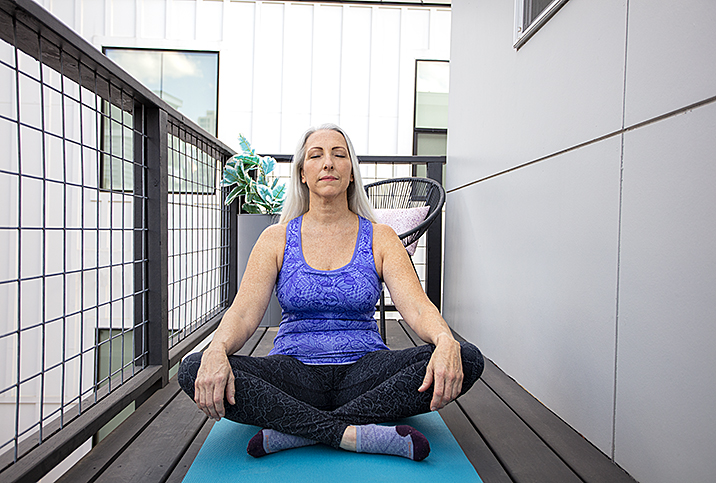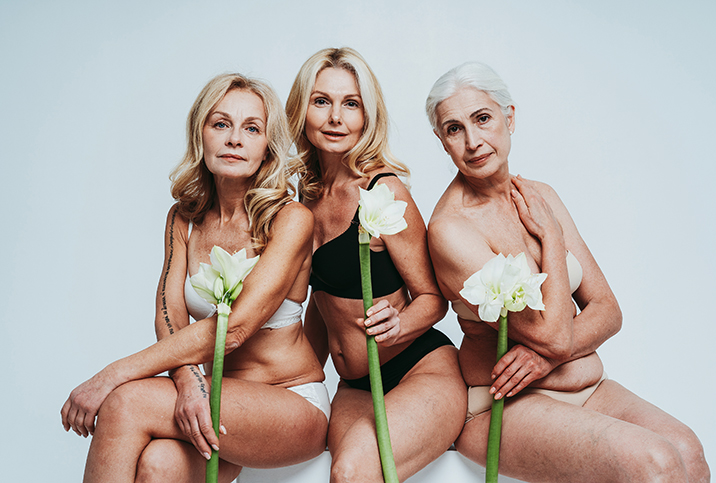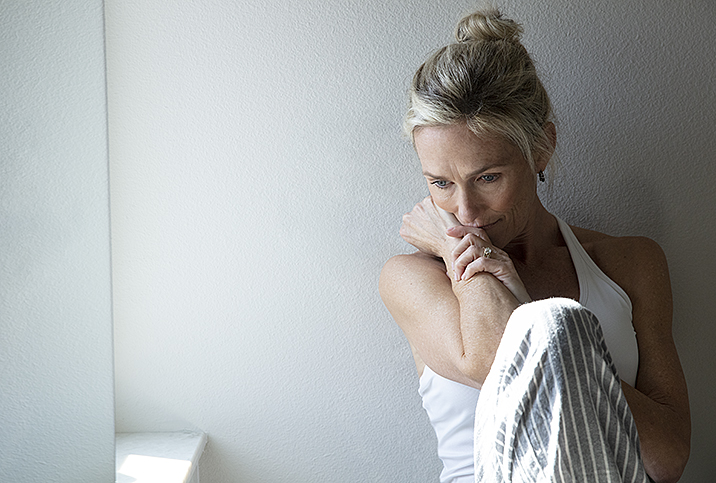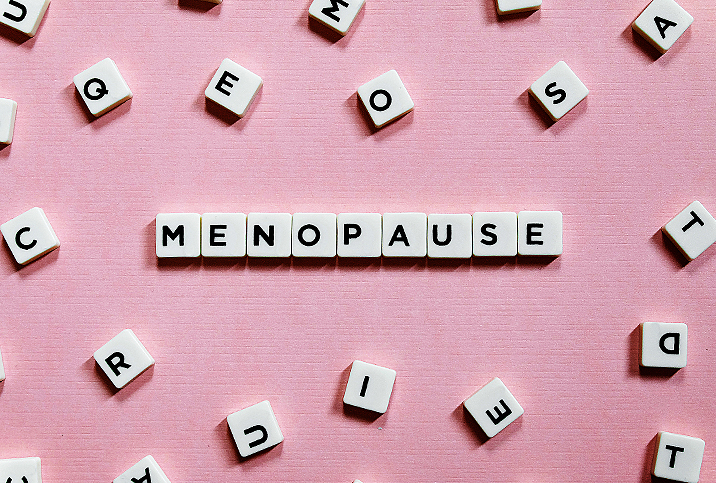If menopause is in your near future, you're in good company. Women all over the world know this will be a part of their aging process, but did you know menopause only occurs in five species, making it an incredibly rare and special biological process?
There are more types of carnivorous plants on the planet than there are living beings who outlive their own reproductive abilities. Four of those are species of whales living in matriarchal societies led by "grandma whales." The fifth is humans. This bit of trivia won't make a hot flash any less sweaty, but it is worth noting evolution seems to be hinting that this life stage is linked to wisdom and leadership.
With that in mind, let's embrace what lies ahead and give our bodies the respect and appreciation they deserve with the following self-care tips.
1. Rethink your idea of menopause
Menopause doesn't get talked about nearly enough, and when it does, it's conveyed as a brief and linear phase. This is flawed because menopause is a process. It may last months or years; women may stop bleeding only to menstruate again later. Full-body symptoms may outlast bleeding, but for some women, when the bleeding stops, so do the menopausal symptoms. Every pregnancy is different, every woman's period is different, and the same is true with menopause. Each woman's experience is unique.
2. Eat a calcium-rich diet
Osteoporosis is what makes a fall potentially dangerous, so we've got to keep our bones strong. Calcium isn't limited to dairy products—seeds are a calcium powerhouse. Throw one tablespoon of chia seeds in your smoothie for an extra 179 milligrams of calcium or make your carbs work for you with a poppy seed bagel. Sardines are notable for their calcium content thanks to edible bones, but slightly less than half a cup of chickpeas will fill 10 to 12 percent of your daily requirement.
3. Do what you feel like doing
It's a vast generalization, but women are typically conditioned to be caretakers who are always prioritizing others above ourselves. At this point in life, it's safe to say you have more responsibilities than you did during your first period. Taking time for a long bath or an extra nap may make you feel like you're being selfish. You're not.
Think of your symptoms as your body's way of communicating with you, rather than as just a problem to be solved. Whatever you feel you need, you need. You've lived in this body long enough to know that.
4. Keep a journal
Track the foods you eat and the symptoms you experience in a journal. A day's worth of experiences may feel like an illogical hodgepodge until you write it down and begin to notice patterns. This can be helpful to bring along to doctor appointments and even therapy sessions.
5. Avoid caffeine, alcohol, sweets and spicy foods
It was inevitable that cutting out or minimizing the fun stuff would come up. Caffeine increases the stress hormone cortisol and alcohol disrupts sleep patterns already threatened by menopause. Menopause also changes your metabolism, so a diet reevaluation may be in order. If it's something you're interested in, there are dietitians that specialize in menopause.
6. Get into the spirit
It may sound corny, but make your next movie night a flick starring a menopausal woman. Giggle with "The Golden Girls," follow the clues with Jessica Fletcher in "Murder, She Wrote" or rent anything Julianne Moore has made in the last decade.
Check out "Lucky Grandma," a sarcastic film starring former Bond girl Tsai Chin as an older woman entangled with the Chinese mafia. Netflix is home to "Grace and Frankie," an odd couple womance (see what I did there? pretty adorable), and "The Forty-Year-Old Version," a Black woman's meditation on creativity and aging.
Sometimes just seeing someone who resembles us onscreen feels like validation for our own existence and further proof we're beautiful. Why not enjoy some art made by older women?
7. Keep an eye out for depression
If you've never attended therapy, now may be the time to start. Every transitional period brings opportunity for reflection, but perimenopause specifically is acknowledged as a window of vulnerability for women to develop depression, whether they have prior experience with this condition or not.
Depression is a chemical imbalance that can be corrected with medication, but don't underestimate the value of talking, too. Therapy isn't just an outlet—it's a training ground to learn how to be a better friend to ourselves.
Women of all ages are vulnerable to criticism never leveled on their male counterparts. Menopause is under-discussed and brings the same social gauntlet of double standards, but that's no reason to internalize the ignorance. Change is beautiful, and some of your best years are up ahead.















